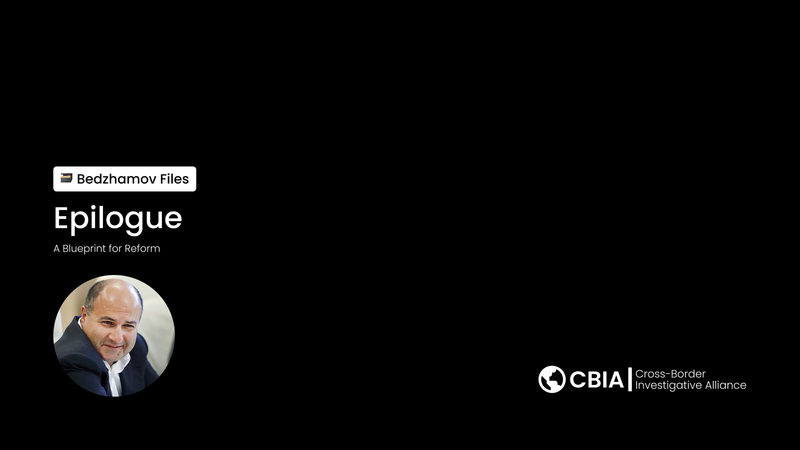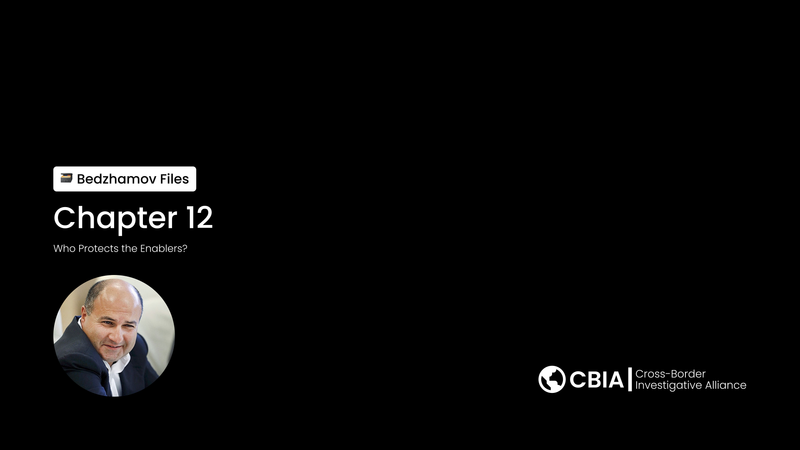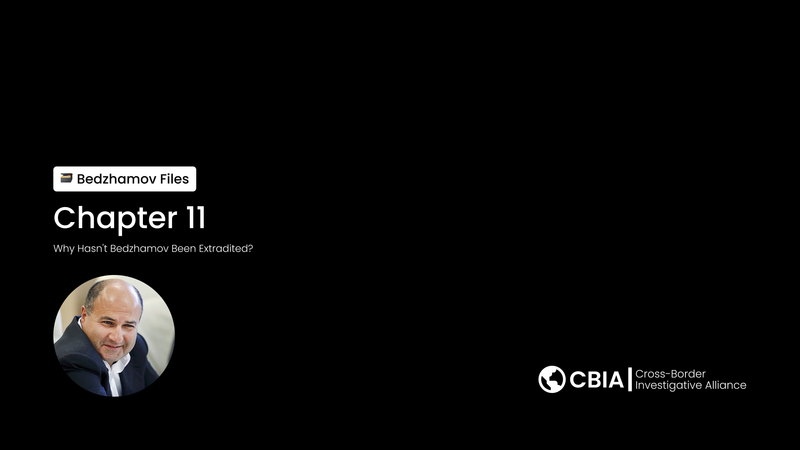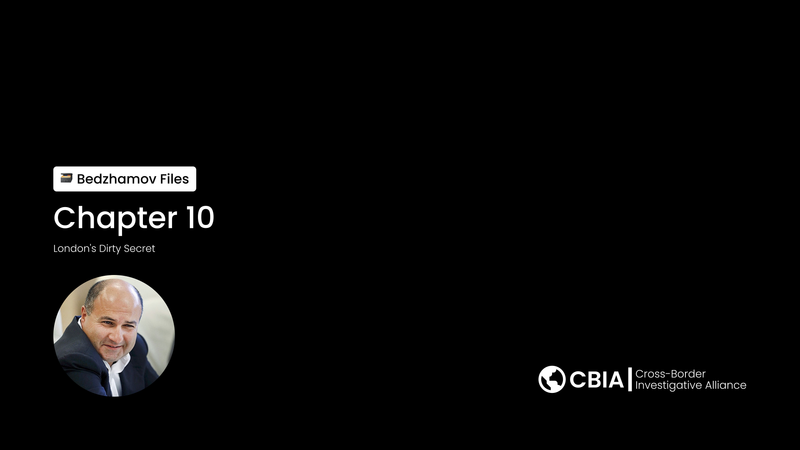Chapter 6: Georgy's Escape
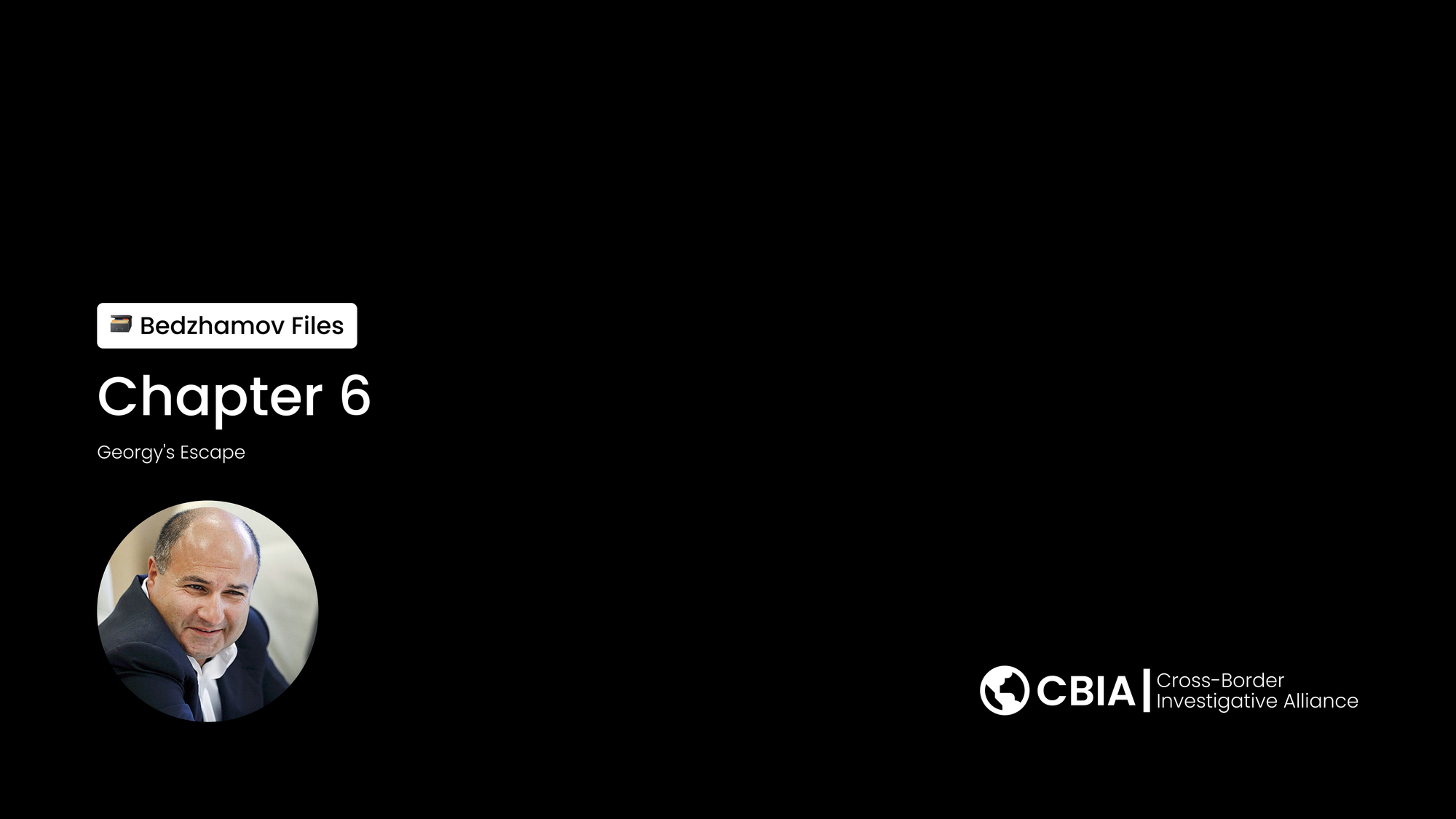
While Larisa Markus faced the full weight of Russian justice, her brother's story took a dramatically different turn. Georgy Bedzhamov's escape and subsequent legal battles across Europe highlight how wealth and geography can determine accountability in cases of financial crime.
In December 2015, as Central Bank auditors began uncovering irregularities at Vneshprombank, Bedzhamov was already outside Russia. His departure—timed just before the fraud became public—suggested foreknowledge of the impending crisis. Unlike his sister who remained to face the consequences, Bedzhamov chose a path well-traveled by wealthy Russians facing legal troubles: flight to jurisdictions with limited extradition cooperation with Russia.
His initial destination was Monaco, where he owned property and had established connections through his role as president of the Russian Federation of Bobsleigh and Skeleton. The principality, known for its favorable tax regime and discretion regarding wealthy residents, initially provided a safe haven. Court documents indicate that Bedzhamov continued a lavish lifestyle there, residing in a luxury apartment overlooking the Mediterranean while Russian authorities built their case against him.
This period of relative security proved short-lived. In April 2016, following an international arrest warrant issued by Russia, Monegasque authorities detained Bedzhamov. This arrest, coming just months after his sister had been taken into custody in Moscow, suggested that his legal problems had followed him to the Mediterranean.
What happened next demonstrated the power of connections and resources in navigating international legal challenges. Despite Russia's extradition request, Bedzhamov was unexpectedly released after just a few days in custody. This release reportedly followed interventions from influential figures, though the exact nature of these interventions remains contested.
Following this close call, Bedzhamov relocated to London—a city long favored by wealthy Russians seeking both financial security and legal protection from extradition to Russia. The United Kingdom's courts have historically been skeptical of Russian extradition requests, often citing concerns about fair trial rights and prison conditions. This reputation made London an obvious destination for someone with Bedzhamov's resources and legal challenges.
In the UK, Bedzhamov established residence in a property in Belgrave Square, one of London's most prestigious addresses. This property, held through a complex ownership structure involving offshore entities, would later become a focal point in legal efforts to recover assets allegedly purchased with misappropriated funds.
Russian authorities continued pursuing Bedzhamov, filing an extradition request with the UK in 2017. This request alleged his direct involvement in the Vneshprombank fraud, characterizing him as a key architect of the scheme rather than merely a beneficiary. According to court documents, prosecutors claimed Bedzhamov had "organized and directed a criminal group" that systematically embezzled funds from the bank through fraudulent loans.
Bedzhamov vigorously contested these allegations and the extradition request. His legal team mounted a multi-faceted defense that included challenging both the evidence against him and the nature of the Russian legal system itself. A key argument was that the case against him was politically motivated and that he would not receive a fair trial if returned to Russia. His attorneys also cited concerns about conditions in Russian detention facilities, arguing that extradition would place him at risk of treatment contrary to Article 3 of the European Convention on Human Rights, which prohibits torture and inhuman or degrading treatment.
These arguments found a receptive audience in the British courts, which have historically been skeptical of Russian extradition requests. The extradition proceedings became protracted, with multiple hearings and appeals spanning years rather than months. This delay worked in Bedzhamov's favor, allowing him to remain in the UK while building his legal defenses across multiple jurisdictions.
While fighting extradition, Bedzhamov also faced civil recovery proceedings initiated by the DIA (Deposit Insurance Agency), which acted as the bankruptcy administrator for Vneshprombank. These proceedings sought to identify and recover assets allegedly purchased with funds misappropriated from the bank. In 2019, the High Court in London issued a worldwide freezing order (WFO) against Bedzhamov's assets, restricting his ability to dispose of property valued at up to $1.34 billion.
This freezing order represented a significant victory for recovery efforts, but implementing it proved challenging. Many of Bedzhamov's assets were held through complex ownership structures specifically designed to obscure beneficial ownership. Entities in Cyprus, the British Virgin Islands, and other jurisdictions held properties, investments, and other assets, creating multiple layers between Bedzhamov and his wealth.
These asset recovery efforts have evolved into an intricate legal saga spanning multiple countries. In the UK, litigation has focused not only on identifying assets but also on Bedzhamov's legal expenses and living allowances under the freezing order. Court documents reveal ongoing disputes about appropriate levels of funding for his legal defense and lifestyle, with the bankruptcy administrators arguing for strict limits and Bedzhamov seeking more generous allowances.
A particularly contentious issue has been the role of litigation funders in the recovery efforts. A1, a litigation funder with connections to the Alfa Group—one of Russia's largest private investment conglomerates—has backed the bankruptcy administrators' legal campaign against Bedzhamov. This funding arrangement has itself become a subject of legal dispute, with Bedzhamov's lawyers suggesting improper motivations behind the recovery efforts.
The May 2024 High Court judgment by Mrs. Justice Cockerill and Master Kaye addressed some of these concerns directly, noting that "A1 is the litigation funder of VPB and the Trustee and therefore stands to obtain a financial benefit from recoveries obtained by them from Mr Bedzhamov." [0] This relationship between the bankruptcy administrators and A1 adds another layer of complexity to an already intricate legal battle.
The judgment also referenced concerns about "whether the funding agreement with A1 is champertous or not" [0], addressing the complex legal question of whether the funding arrangement might constitute improper interference in litigation. These procedural disputes illustrate how recovery efforts in complex fraud cases can become bogged down in satellite litigation over technical legal issues, delaying substantive resolution for years.
Beyond these legal battles, Bedzhamov has maintained a lifestyle that stands in stark contrast to his sister's imprisonment. Court documents indicate that he has occupied luxury properties in London and traveled extensively despite the asset freezes. This apparent ability to maintain a comfortable existence despite severe legal restrictions has frustrated victims of the Vneshprombank fraud and raised questions about the effectiveness of asset recovery mechanisms in cross-border cases.
The contrast between the siblings' fates illustrates a fundamental challenge in addressing sophisticated financial crime. When perpetrators remain within reach of domestic authorities, as Markus did, justice can be swift and severe. However, when they cross borders and engage legal systems with different standards and procedures, accountability becomes far more difficult to achieve.
This disparity is particularly apparent in the treatment of Russian extradition requests by Western courts. While these courts' concerns about fair trial rights and detention conditions in Russia may be legitimate, the practical effect is to create safe havens for individuals with sufficient resources to relocate internationally. As one legal scholar noted, "The irony is that the greater the alleged fraud, the more resources the suspect has to fight extradition and the less likely they are to face trial in their home jurisdiction."
The geographical immunity enjoyed by Bedzhamov also highlights the limitations of international cooperation in combating financial crime. Despite improvements in mutual legal assistance and asset recovery mechanisms, significant gaps remain, particularly when cases involve jurisdictions with complex political relationships. The result is a system where accountability often depends as much on geography and resources as on evidence and culpability.
Recent developments in the case illustrate these ongoing challenges. In the May 2024 High Court judgment, the court addressed concerns about the ownership and control of litigation against Bedzhamov, noting that "the Trustee's intervention was funded by A1 with a view to denying access to assets that Mr Bedzhamov (and through him his legal advisers) might otherwise reasonably have expected to have available for reasonable legal and living expenses under the WFO." [0]
The judgment specifically addressed A1's connection to Alfa Group, noting that "Mr Tchernenko appears to be a member of A1 Law Office, an entity which, according to the Alfa Group's 2020 Annual Report, is part of the Alfa Group." [0] The court expressed concern about potential conflicts of interest arising from this relationship, highlighting the complex interplay between commercial interests and legal recovery efforts in high-value fraud cases.
Despite these challenges, the recovery effort against Bedzhamov continues across multiple jurisdictions. In addition to the UK proceedings, legal actions have been initiated in Monaco, Switzerland, and Cyprus, seeking to identify and freeze assets allegedly linked to the Vneshprombank fraud. These parallel proceedings create a complex legal landscape that requires coordination across different legal systems with varying procedures and standards.
The Bedzhamov case thus demonstrates both the sophistication of modern asset protection strategies and the limitations of current recovery mechanisms. Despite years of legal proceedings and significant resources devoted to asset tracing, much of the money allegedly stolen from Vneshprombank remains beyond the reach of the bank's creditors and depositors. This outcome illustrates how the global financial system, despite increased anti-money laundering regulations, still offers significant opportunities for hiding illicitly acquired wealth.
As the legal battles continue, Bedzhamov's case serves as a powerful reminder of how geography, resources, and sophisticated legal strategies can shield individuals from the consequences of alleged financial crimes. While his sister serves her sentence in a Russian penal colony, Bedzhamov remains in London, fighting legal battles that may continue for years before reaching any final resolution.
This disparity in outcomes doesn't just represent an individual injustice—it highlights systemic weaknesses in addressing complex financial crime in a globalized world. Until these weaknesses are addressed through more effective international cooperation and stronger anti-money laundering enforcement, similar cases of geographical immunity will likely continue.
Sources:
[0] Vneshprombank v Bedzhamov, Kireeva v Bedzhamov [2024] EWHC 1048 (Ch)
[1] "Extradition Challenges in Cross-Border Financial Crime Cases", International Law Review
[2] "Asset Tracing and Recovery: Legal Strategies and Practical Challenges", Financial Crime Analysis
[3] "Litigation Funding in Complex Fraud Cases: Ethical and Practical Considerations", Legal Ethics Journal
[4] "Safe Havens and Financial Crime: Geographic Immunity in the Modern Era", Criminal Justice Research
[5] "The Effectiveness of International Cooperation in Asset Recovery", Global Financial Integrity Report


